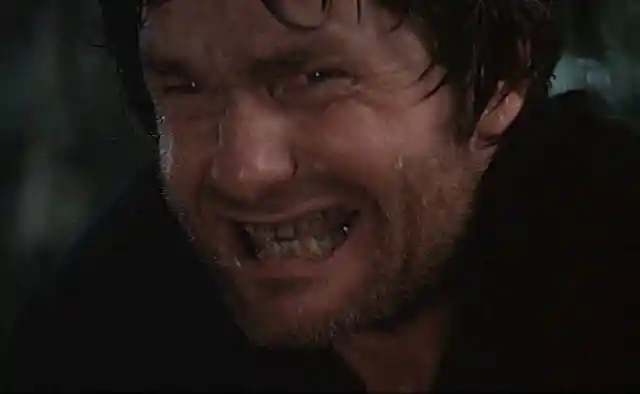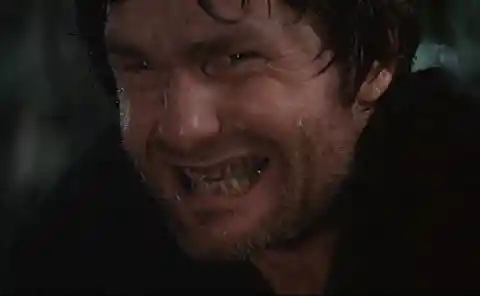Over the years film dialogue has filtered into our society's lexicon that at times it seems we can rarely go a week without recognizing a famous line from the silver screen. Going into a business deal we amp ourselves with The Godfather's famous "I'm gonna make him an offer he can't refuse" line uttered by Marlon Brando in 1972.
An ex-lover calling to tell you they're getting married, think Gone With The Wind's iconic "Frankly, my dear, I don't give a damn" response by Clark Gable in 1939.
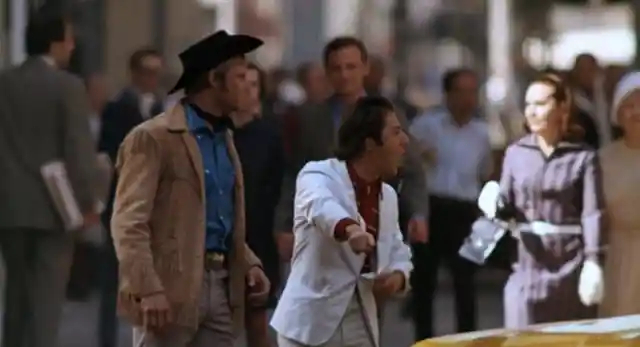
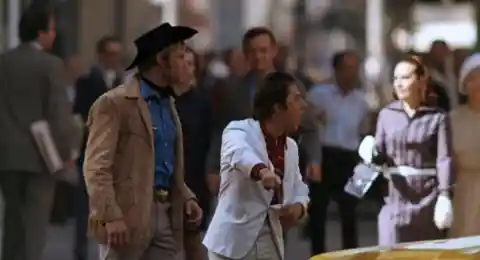
Some of these lines have become so ingrained in our language that we cannot say the words without remembering the film. Think, Arnold Schwarzenegger's "I'll be back" catchphrase from 1984's The Terminator. Some of these famous moments were purely due to a moment of inspiration and made its way to the film's final cut.
A moment of acting brilliance, an angry response to a director's unrealistic demands, or a natural shock reaction stemming from an on-set surprise, many of film's famous moments were never in the original script.
Grab your popcorn and fill up on soda as we journey through the Big Screen's most famous unscripted moments.
Keep reading to learn which actor was shocked into silence:
Midnight Cowboy
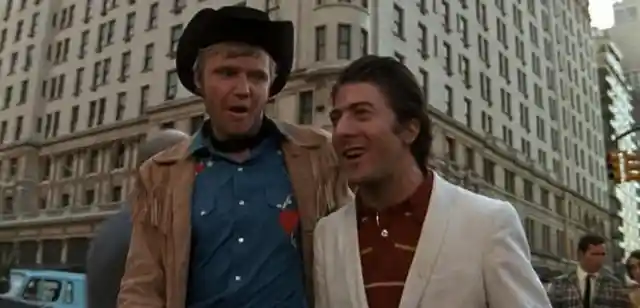
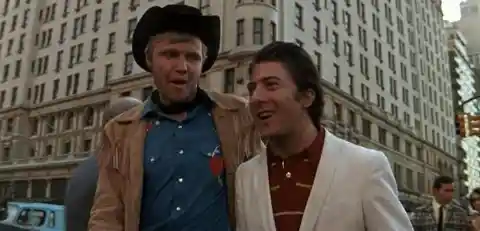
Midnight Cowboy, released in 1969, was the first ever X-rated film to win Best Picture (a classification since discontinued). While the two stars walk down the streets of New York, where the film is set, a real-life taxi seemingly missed seeing the set signs and nearly drove into actors Dustin Hoffman and Jon Voight.
Watch Where You're Driving!
Hoffman, staying in character, screams at the driver "I'm walking here! I'm walking here!" which became a memorable moment in the film.
A Few Good Men
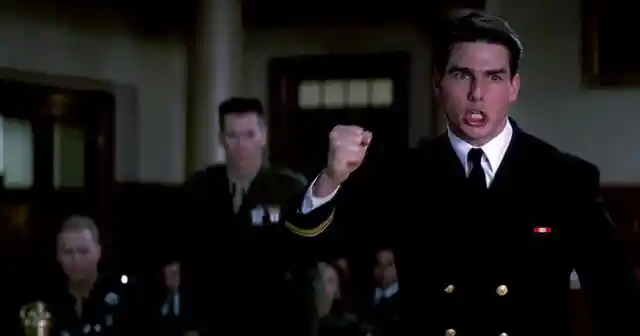
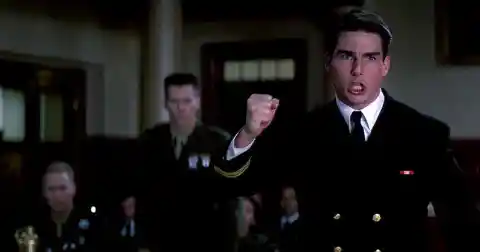
The 1992 American legal drama A Few Good Men, featured an ensemble cast which included Tom Cruis, Jack Nicholson, Demi Moore, Kevin Bacon, and Keifer Sutherland. With such a star-studded billing, it should come as no surprise that the actors played off each other and improved several parts of the script.
I Want The Truth!
The most memorable line, however, comes in the climax of the film, as Tom Cruise demands Nicholson's character tell the truth regarding what happened in the lead up to the murder of a marine. Nicholson, fightingly shouts in defiance, "You can't handle the truth!" The line remains the most iconic moment from the film and nabbed Nicholson yet another Oscar nomination.
Ghost
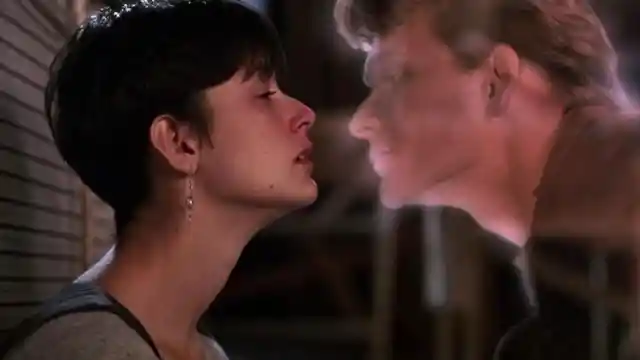
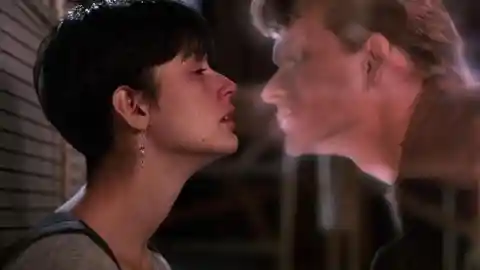
An unexpected box-office success, 1990s Ghost, was the highest grossing film of its year and claimed two Academy Awards. Playing a reluctant psychic who helps a young woman (Demi Moore) connect with the ghost of her murdered lover (Patrick Swayze), Whoopi Goldberg who won the Best Supporting Actress Oscar.
Fair Warning
Goldberg truly encapsulates the eccentric personality of her character Oda Mae Brown and gives the performance of a lifetime. In the scene where Goldberg goes to alert Moore that her former lover's murderer is still out on the loose, she ad-libs the line, "Molly, you in danger, girl."
Clueless
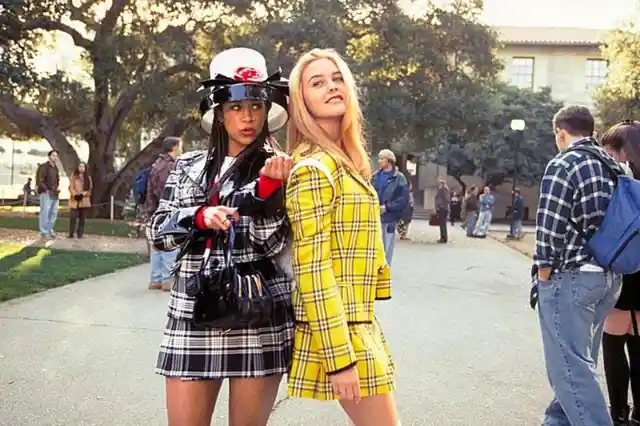
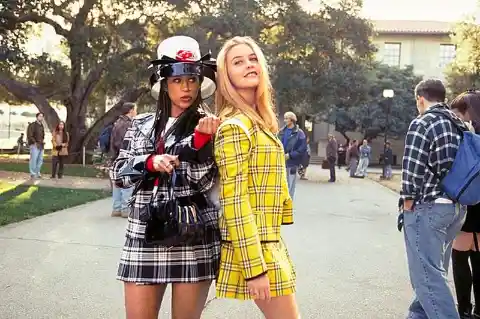
The 1995 romantic coming-of-age comedy Clueless is loosely based on Jane Austen's 1815 novel Emma, updating the setting to modern-day Beverly Hills. The film was an instant classic upon its release and developed a cult following in the ensuing years, culminating in a spin-off television sitcom.
The Eavesdropping Neighbor
One of the film's funniest moments happens when Cher Horowitz, played by Alicia Silverstone, goes to a party in Sun Valley. During the party, we see Murray Duvall, played by Donald Faison, inexplicably shave his head. When queried why he's doing it, he nonchalantly responds, "I’m just keepin’ it real." The line was improvised by the actor who picked it up from one of his younger neighbors.
The Silence Of The Lambs
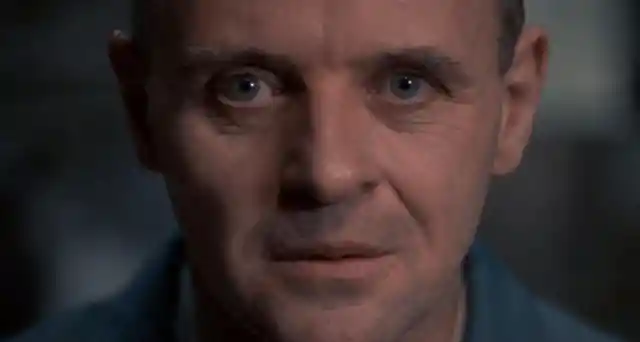
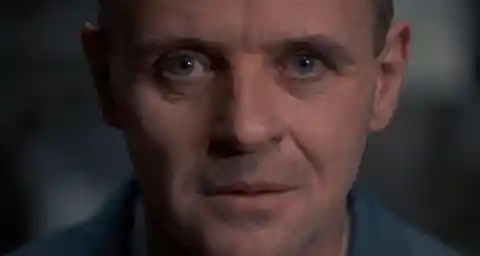
For his portrayal of the cannibalistic serial killer Hannibal Lecter in The Silence of the Lambs, Anthony Hopkins won the Academy Award for Best Actor in 1992. The British actor gets less than 16 minutes of screen time - the shortest to ever win a leading Oscar. In an unforgettable performance which included several unscripted moments, there is no dispute Hopkins stole the show.
Fava Beans And A Nice Chianti
The most quotable line in the film is when Hannibal goes on a monologue if how he would eat human flesh - "I ate his liver with some fava beans and a nice chianti." During rehearsals, Hopkins added the character's signature slurp/hiss which still makes us uneasy.
Forrest Gump
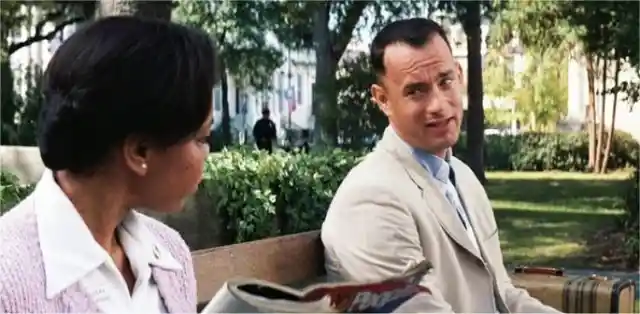
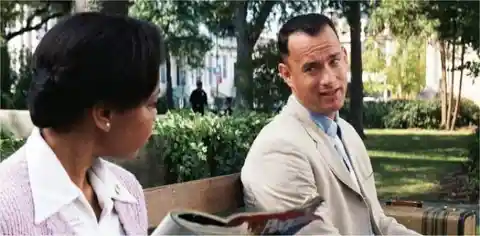
Forrest Gump is one of the most quotable movies of all time and won several Academy Awards including Best Picture, Best Director, and Best Actor among several others. Tom Hanks who plays the titular character, improvises the line "My name is Forrest Gump. People call me Forrest Gump" when he first meets Bubba.
Forrest Is As Forrest Does
Director, Robert Zemeckis, ended up liking the line so decided to keep it in the 1994 film. Known for the character's peculiar quirks, the slow-witted yet kind-hearted man from Alabama captured the heart of a nation as he is party to several defining historical events in 20th century America. "What's normal anyways?" as Forrest would say.
When Harry Met Sally
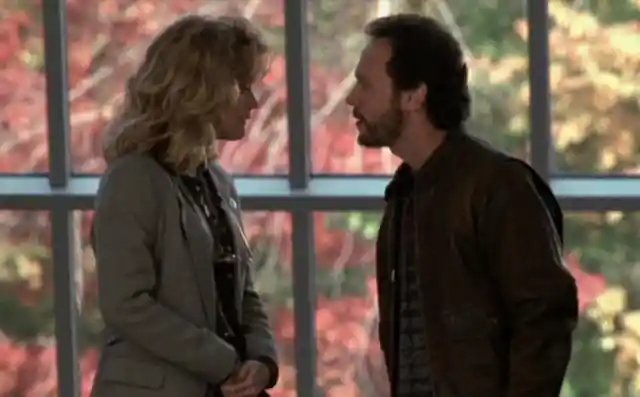
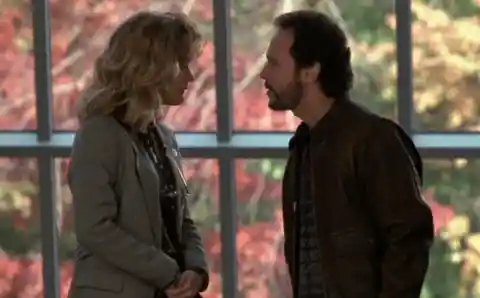
A classic romantic comedy, When Harry Met Sally... remains an American cult classic. The 1989 film attempts to answer the question of whether men and women can ever be just friends. At one point, Harry (played by Billy Crystal), says to Sally (played by Meg Ryan), "I would be proud to partake of your pecan pie."
I'll Have Whatever She's Having
Meg Ryan, who was taken completely by surprise, ended up laughing at Crystal's unscripted remark. Director, Rob Reiner, loved the impromptu line and reaction so much that he decided to keep it in the film.
The Dark Knight
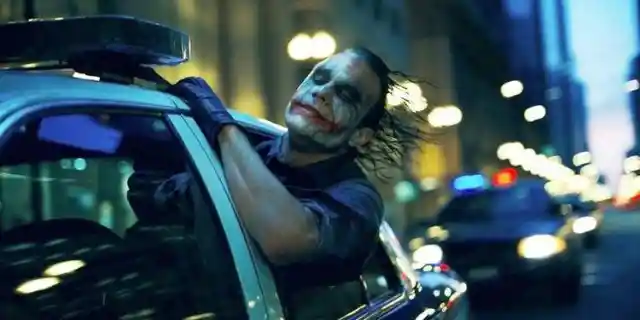
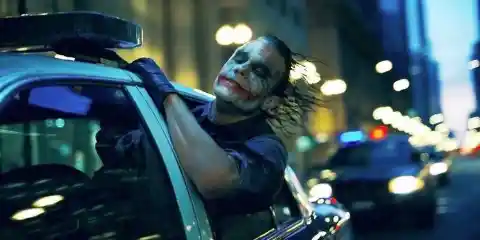
The late Heath Ledger became only the second actor to be posthumously awarded an acting Oscar following his death before The Dark Knight's 2008 release. A method actor, Ledger prepared himself for the role of The Joker by living alone in a hotel room for a month, devising the character's posture, voice, and personality. He also kept a diary, in which he recorded the Joker's thoughts and feelings.
Pause For Applause
Director, Christopher Nolan was so enamored by Ledger's performance, every take Ledger made was different from the last, with the Nolan choosing not to be present in one scene, seeing as he was so impressed. In the scene in which Commissioner Gordon (played by Gary Oldman) is promoted, Ledger's sarcastic slow clap was completely improvised.
Good Will Hunting
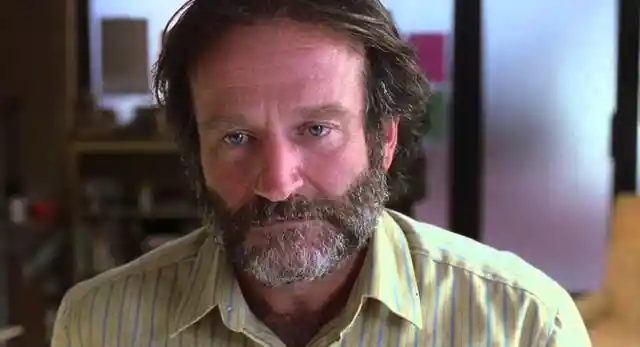
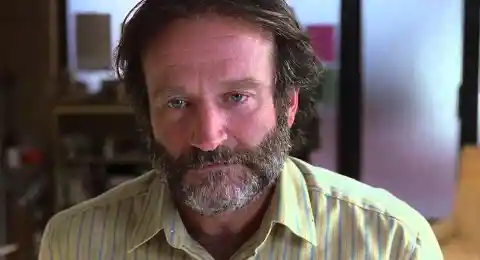
The late Robin Williams was an underrated actor, perhaps best demonstrated by his performance in the 1997 movie Good Will Hunting, for which he won an Academy Award for Best Supporting Actor. The film also shot actors Matt Damon and Ben Affleck to stardom as the two won the Oscar for Best Adapted Screenplay.
Whose Line Is It Anyway?
Near the ending of the film, Williams (who plays Sean Maguire the protagonist's therapist) reads a letter from Will (the film's protagonist played by Matt Damon) which reads, "Sorry, I had to go see about a girl." "Son of a b****. He stole my line!" Williams remarks. The unscripted response ends up staying in the final version.
Being John Malkovich
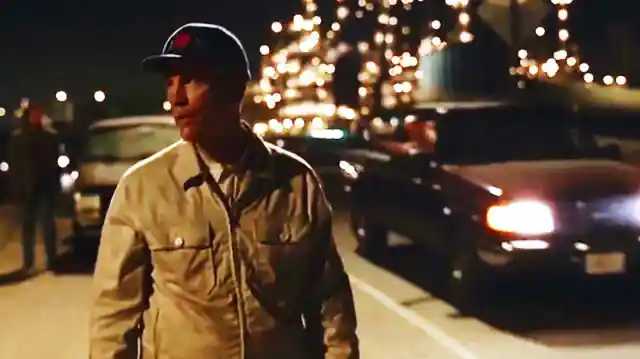
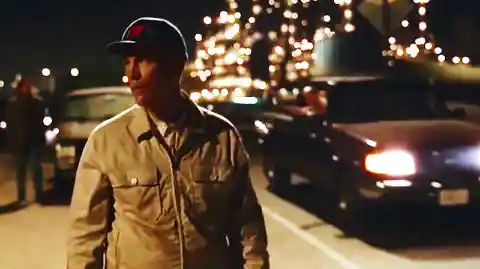
Almost twenty years after it's 1999 release, Being John Malkovich is still difficult to describe. The film follows a puppeteer played by John Cusack who finds a portal into the mind of Malkovich's mind. The fantasy comedy-drama is as absurd as it sounds.
Extra Credit?
In one scene where we see Malkovich walking along the road, we see a passenger in a passing car throw a can at the titular character's head yelling out "Hey, Malkovich! Think fast!" It turns out, the extra who threw the can was drunk at the time, as the entire event was unscripted. Director Spike Jonze liked the bizarre moment so much he kept in the film's final edit.
The Usual Suspects
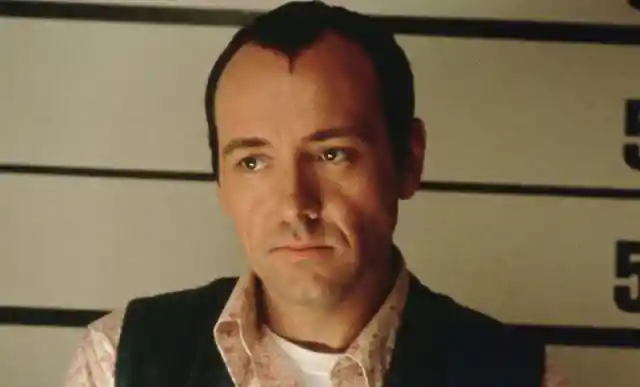
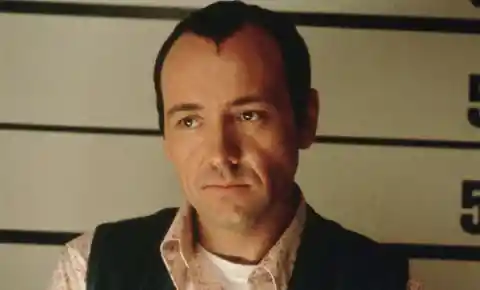
Director Brian Singer was pedantic that the actors stick to the script during the filming of the 1995 neo-noir mystery film The Usual Suspects. Despite the director being a stickler for the rules, there was one notable exception in the movie.
Did You Catch Wind Of This?
Kevin Spacey's character recounts the events of the movie, beginning with a police lineup where he and four others are set. The iconic scene, which was used in the film's promotional posters, but according to the cast it was the most difficult scene to shoot due to the actors not being able to contain their laughter. The entire scene was improvised, down to Benicio Del Toro passing wind as the policeman tells him "in English please".
Goodfellas
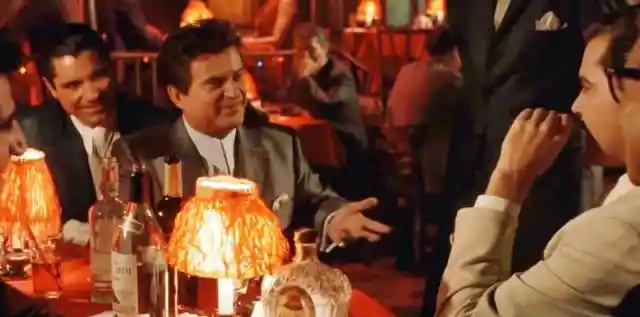
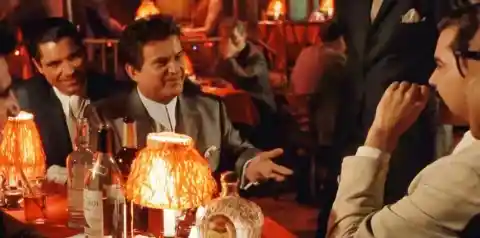
Widely considered to be the most realistic gangster movie ever made, 1990's Martin Scorsese directed Goodfellas tells the story of real-life gangster turned informer, Henry Hill (played by Ray Liotta). Several improvisation and ad-libs came out of rehearsals wherein Scorcese gave the cast, which also included Robert De Niro and Joe Pesci permission to do whatever they wanted. The director would then make transcripts of the sessions and keep the parts he liked best before adding it to the final script.
Waddya Mean I’m Funny?
Joe Pesci, who plays Tommy DeVito in the film won the Academy Award for Best Supporting Actor in the movie. In one of the most memorable moments in the film where Tommy tells Henry to explain why he thinks he's funny was completely improvised. Tommy toys with Henry with questions like, "I’m funny how? I mean funny like I’m a clown? I amuse you?" Before Henry eventually realizes Tommy is just messing with him.
Taxi Driver
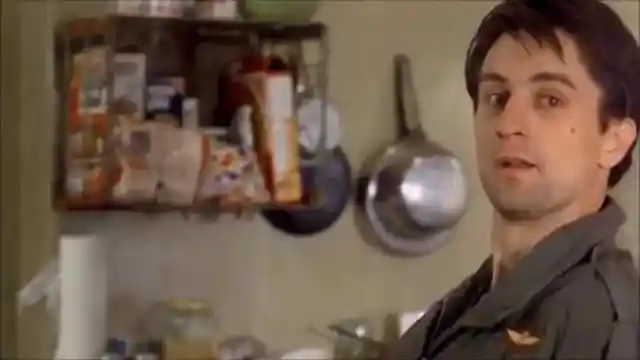
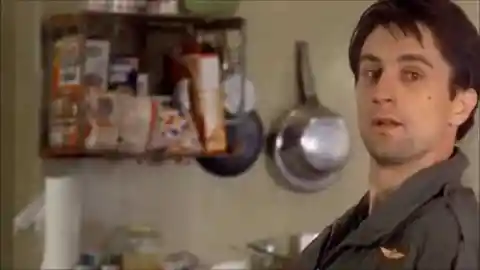
In the 1976 film Taxi Driver, Robert De Niro gives an unforgettable performance as lonely Vietnam veteran Travis Bickle who works as a taxi driver before descending into insanity as he plots to assassinate a US presidential candidate. The Martin Scorcese directed neo-noir psychological thriller film won the Palme d'Or at the Cannes Film Festival upon its release.
Mirror, Mirror On The Wall
In one of the film's most iconic moments, we see De Niro utter the famous "You talkin' to me?" line as Bickle is looking into a mirror at himself, imagining a confrontation that would give him a chance to draw his gun. The moment was entirely improvised by the De Niro after the script only read "Travis speaks to himself in the mirror".
The Warriors
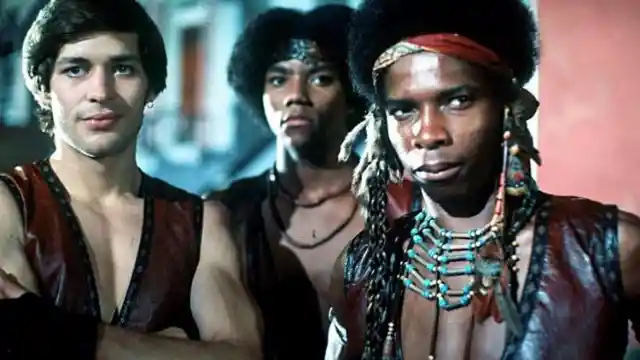
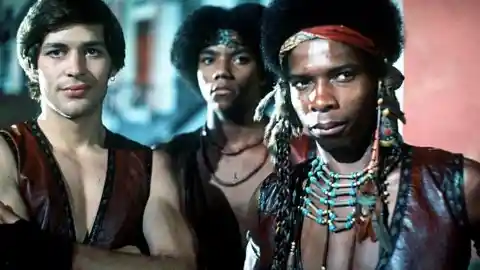
The 1979 action thriller The Warriors tells the story of a New York City gang who make their way from The Bronx to Brooklyn after they are framed for the murder of a respected gang leader. Luther the film's main antagonist, played by actor David Patrick Kelly, delivers the cult-classics most memorable line, "Warriors, come out to play!" The phrase was entirely down to the actor's improvisation.
Anyone For Seconds?
The actor took it a step further second time when he repeated the phrase, only this time pronouncing it "Warriors...come out to play-ee-ay!" while holding three bottles in one hand like claws as he clinks them together.
Apocalypse Now
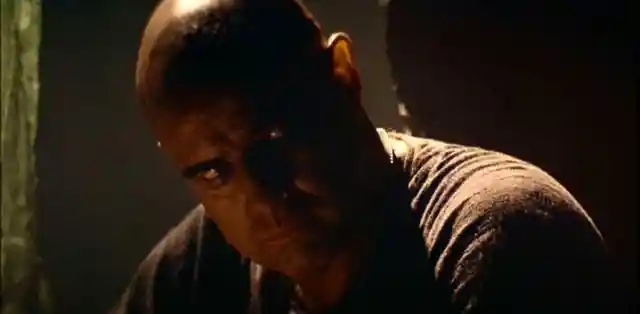
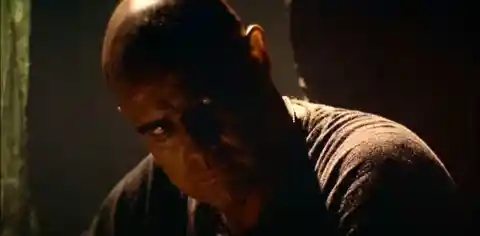
Francis Ford Coppola's 1979 epic war film Apocalypse Now tells the story of a secret mission to assassinate Colonel Kurtz (played by Marlon Brando), believed to be a renegade Army officer accused of murder and thought to be insane, by Captain Benjamin L. Willard (played by Martin Sheen) set in the backdrop of the Vietnam War.
A Special Brando Work
Brando, a method actor, and notorious for being difficult to work with, refused to learn his lines as he arrived on to set overweight and seemingly unprepared. At one point it is reported Brando wore the script as a paper hat. Coppola dressed Brando in black to hide in an effort to hide his weight.
He also photographed only his face and had another taller actor double for him in some scenes. The film did not have an ending as Brando was too fat to play the scenes as written in the original script, so Coppola rewrote the ending to mimic the story of the Fisher King. In total Brando improved over 18 minutes of dialogue.
Blade Runner
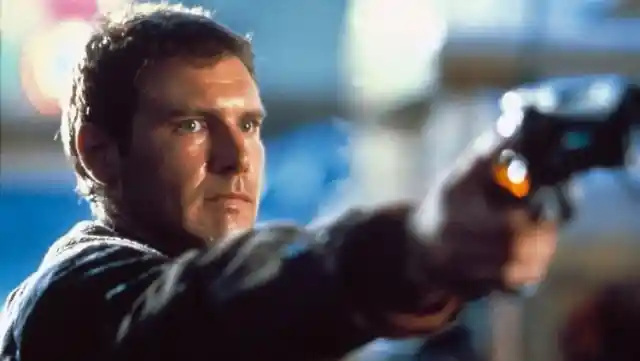
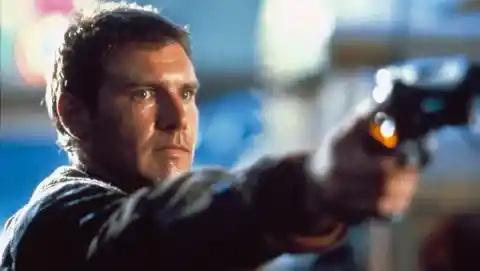
When 1982's Blade Runner was released, all eyes were on lead actor Harrison Ford, fresh off his starring role in the first two Star Wars films. After achieving success in the previous Raiders of the Lost Ark, all eyes were on Ford as he secured the part after searching for a character with dramatic depth. However, by the time the credits rolled it was the anti-hero Roy Batty (played by Rutger Hauer) who stole the show.
Tears Of Rain
The actor started the scene by saying exactly what was written, however, he then deviated by adding his own lines. Hauer had improvised the lines the night before filming, and then delivered the "famous tears in rain" monologue the next day. His performance was applauded by the film crew, with some even crying as he concludes with the words, "All those moments will be lost in time, like tears in rain. Time to die."
Jaws
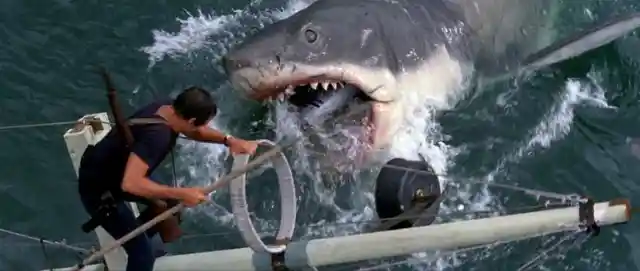
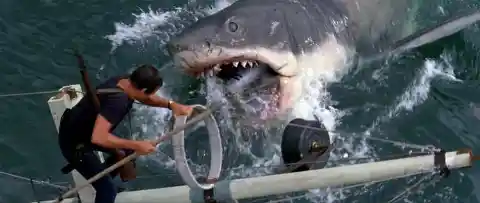
Considered the first summer blockbuster, Steven Spielberg's Jaws shot the young director to superstardom. The 1975 thriller film is considered one of the greatest films ever made to this day, with the haunting theme becoming part of popular culture.
How A-Boat This Line
Roy Scheider, who plays police chief Martin Brody, after being attacked by the man-eating great white shark tells his crew onboard the orca (or what's left of it), "You're gonna need a bigger boat." His deadpan expression contrasting with the terrified expressions on everyone else's face was a purely ad-lib.
Raiders Of The Lost Ark
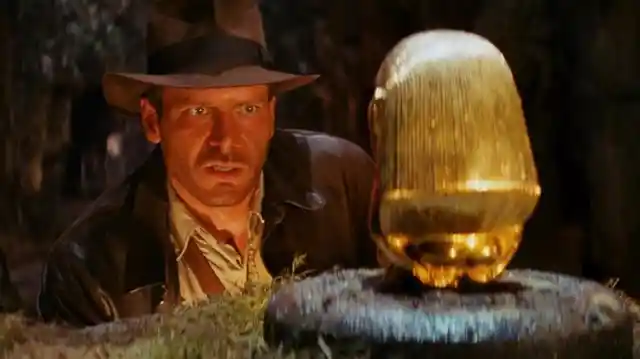
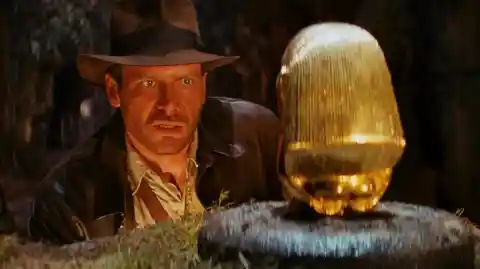
There's one scene in 1981's Raiders of the Lost Ark which stands above the others. In the original script, Harrison Ford, who plays Indiana Jones, is set for an epic showdown with a swordsman on a busy Cairo street. At the time of filming, however, Ford was suffering from dysentery, despite practicing for weeks.
Don't Bring A Knife To A Gun Fight
The original scene was to showcase a fight between the swordsman and Jones' whip. However, after filming the first shots of the scene, following a lunch break, Ford and director Steven Spielberg agreed to cut the scene down to a gunshot. Ford apparently said to Spielberg, "Let's just shoot the sucker." And thus one of the film's most iconic moments was born.
Willy Wonka And The Chocolate Factory
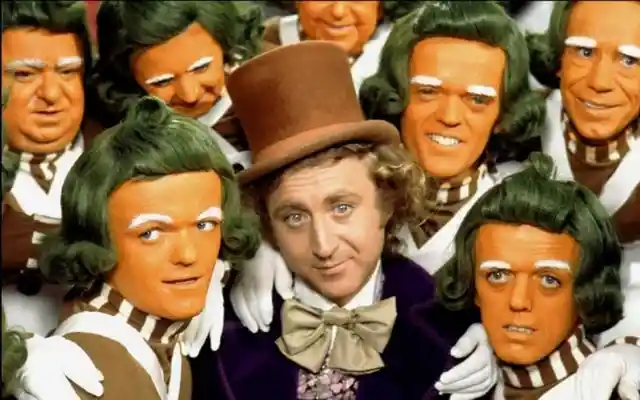
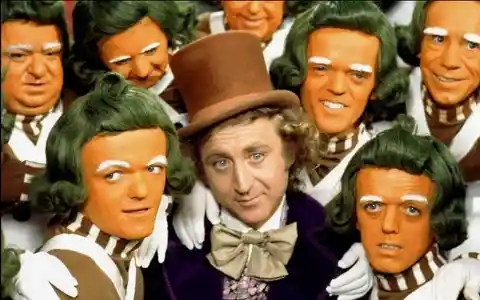
Mel Stuart, the director of 1971's Willy Wonka & the Chocolate Factory, had only one man in mind for the role of the titular character. Many actors expressed interest in the role such as all six member fo Monty Python, as well as Peter Sellers. Spike Milligan was author Roald Dahl's original choice to play Willy Wonka. Of course, Wilder won out but accepted it only on one condition.
How's That For An Entrance
This was his condition in his own words, "When I make my first entrance, I'd like to come out of the door carrying a cane and then walk toward the crowd with a limp. After the crowd sees Willy Wonka is a cripple, they all whisper to themselves and then become deathly quiet. As I walk toward them, my cane sinks into one of the cobblestones I'm walking on and stands straight up, by itself; but I keep on walking until I realize that I no longer have my cane. I start to fall forward, and just before I hit the ground, I do a beautiful forward somersault and bounce back up, to great applause."
The reason Wilder specifically wanted this in the film was so that "from that time on, no one will know if I'm lying or telling the truth."
RoboCop
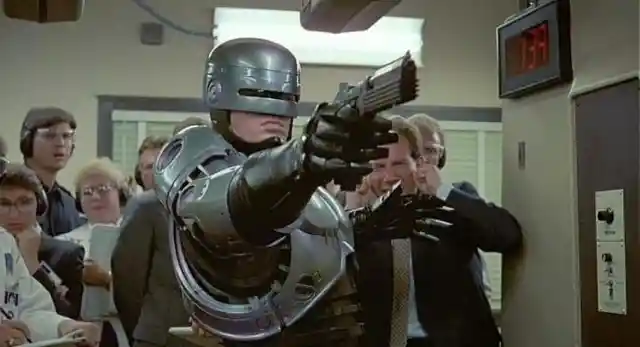
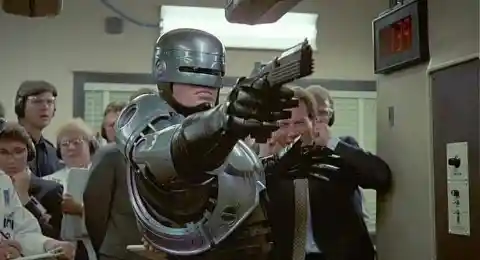
Directors sometimes withhold information from actors in order to film their natural reaction. In 1987's RoboCop, Kurtwood Smith's character Clarence Boddicker, is taken into the police station after he is beaten up bloody by RoboCop.
You Get One Phone Call
Smith it seems, had a conversation with the director, Paul Verhoeven, about adding in a line as he is brought in. Verhoeven agreed, however, told him to keep it a secret. When the actor shouted in anger, "Give me my f****** phone call!", everyone was genuinely left shocked.
A Clockwork Orange
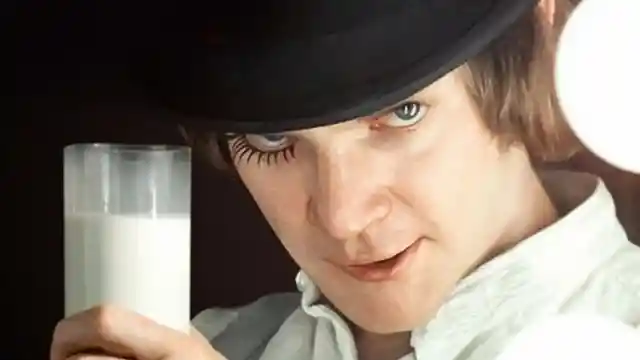
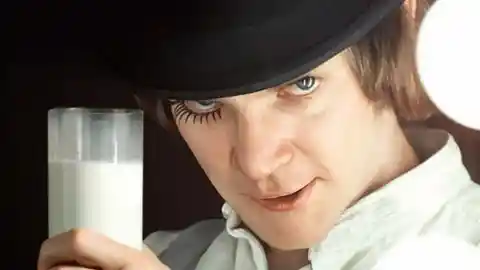
In the 1971 dystopian crime film A Clockwork Orange, director Stanley Kubrick wanted to get the scene where Alex and his accomplices break into the home of a couple in the countryside just right as it sets up the mood of the film.
Song And Dance
Kubrick felt the scene wasn't working as they filmed take after take. He finally said to Malcolm McDowell who plays the main character Alex DeLarge, "Just do whatever you want." McDowell then breaks out into "Singin' in the Rain" as the cameras keep rolling. The moment defines the enigmatic nature of McDowell's character.
Full Metal Jacket
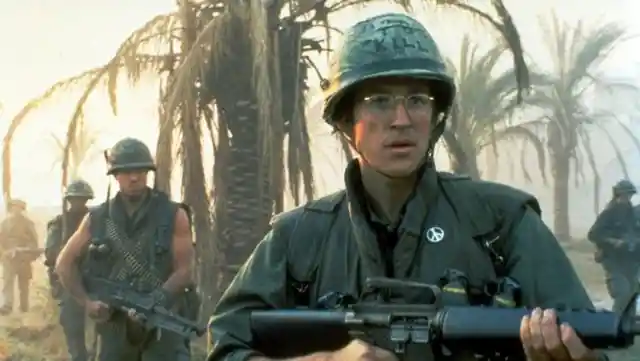
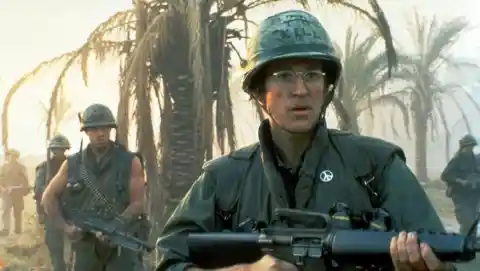
Stanley Kubrick's 1987 war film Full Metal Jacket tells the story of a platoon of U.S. Marines from their training through to the Tet Offensive in the Vietnam War. The title of the film refers to the full metal jacket bullet used by soldiers. The most iconic character of the picture is R. Lee Ermey's Gunnery Sergeant Hartman who acts as an abusive drill instructor. Ermey won the part after Kubrick watched a video of the former U.S. Marine Drill Instructor improvise insulting dialogue against a real group of Royal Marines. Kubrick would state he "was a genius for this part".
Half Metal Jacket?
In total, Kubrick incorporated the 250-page transcript of Ermey's rants into the final script. Kubrick estimated that Ermey wrote 50% of his own dialogue, especially the insults. Ermey's performance was universally praised by critics.
Saving Private Ryan
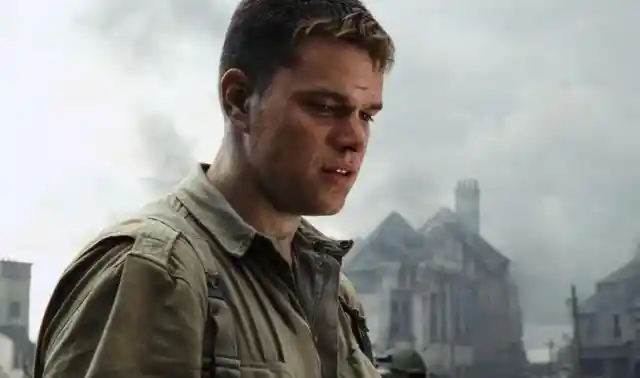
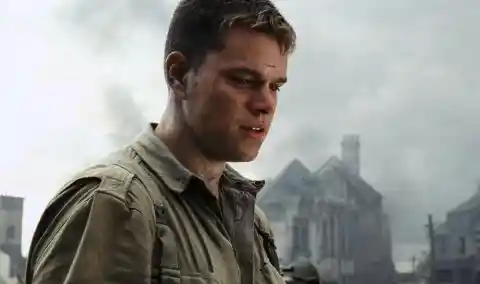
Said to be the most realistic portrayal of war ever portrayed in a film, Steven Spielberg's war epic Saving Private Ryan released in 1998 won the Academy Awards for Best Director, and Best Picture as well as three more. In one of the film's most touching moments, Tom Hanks and Matt Damon who play Captain Miller and Private Ryan respectively, share a sincere discussion of everything they've left behind.
Quite The Story
The story Private Ryan shares with Captain Miller wasn't in the script. Matt Damon ad-libbed the entire story he tells, towards the end of the film, about spying on his brother in the barn with the ugly girl. Spielberg liked it so much he left it in the film.
This Is Spinal Tap
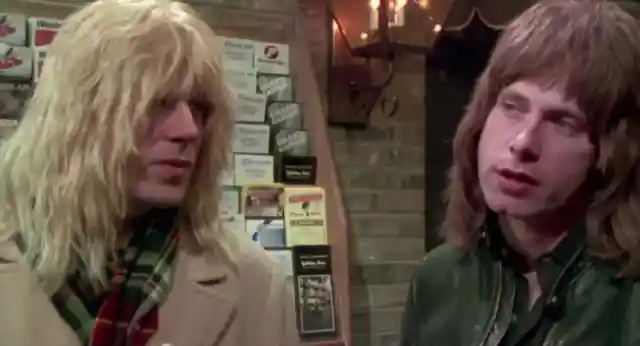
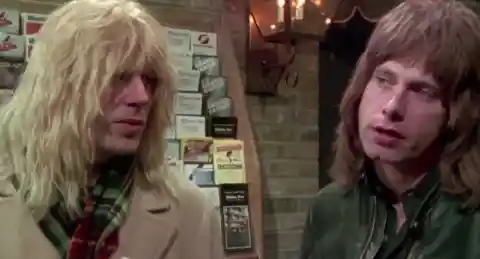
This Is Spinal Tap released in 1984 satirizes the behavior and musical pretensions of rocks bands as well as the saint-like biographies of rock documentaries. Most of the film's dialogue was improvised with over 100 hours worth of footage filmed. The movie follows the journey of the fictional British rock group Spinal Tap, made up of Americans faking British accents in their attempt to spoof the 1980s rock star lifestyle.
Let's Make It Up As We Go
Without a definite script, most of the film was simply made up as the actors went along. Much of the material was down to the actors' improvisation with them only being given outlines of where scenes would begin and end, as well as character information in order to avoid contradictions. As such, actors were given unofficial writing credit for the movie. As much as possible the first take was used in order to capture natural reactions. At one point writer Reiner wanted to list the entire cast as writers in the film, however, the Writers' Guild objected.
Dr. Strangelove
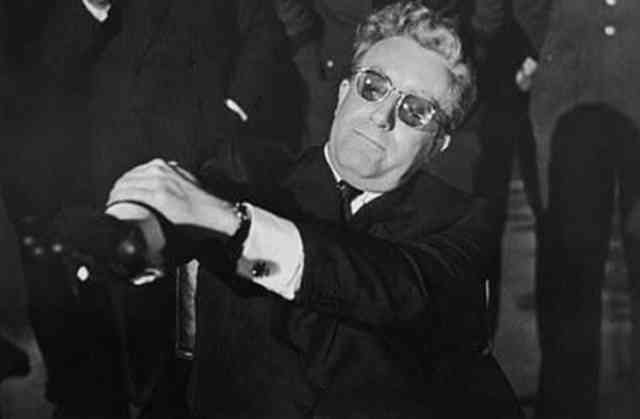
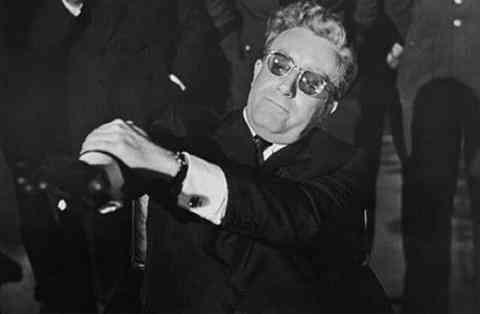
1964's Dr. Strangelove which was directed by Stanley Kubrick satirizes the Cold War fears of an impending nuclear conflict between the Soviet Union and the United States. The story revolves around an unhinged U.S. Air Force general who orders a first strike nuclear attack on the Soviets, with the U.S. President and company attempting to recall the bombers and prevent an apocalypse.
An Unscripted Movie?
Classified as a political satire black comedy, the film is alternatively titled How I Learned to Stop Worrying and Love the Bomb. Peter Sellers who plays several roles in the film is said to have improvised much of his dialogue. Sellers play the titular character, Dr. Strangelove, Group Captain Mandrake, and President Merkin Muffley.
Zoolander
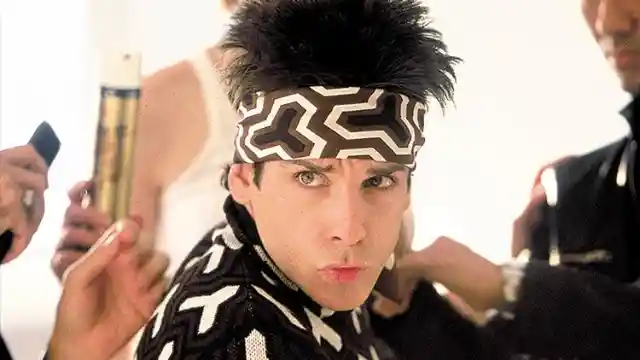
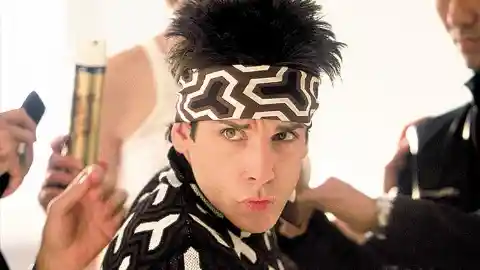
2001's Zoolander directed by and starring Ben Stiller focuses on the dimwitted, narcissistic male model Derek Zoolander as he becomes the pawn in a plot to assassinate the Prime Minister of Malaysia, orchestrated by corrupt fashion executives. The film features cameos by several well-known actors and other celebrities.
But Why Male Models?
In Zoolander's interaction with J.P. Prewett, played by David Duchovny, the latter answers a question posed by the former with a lengthy explanation. Stiller repeats the question "But why male models?" again after forgetting his line. Duchovny remaining in character responds with a straight answer. The scene remains proved to be one of the film's most quotable lines.
The Shining
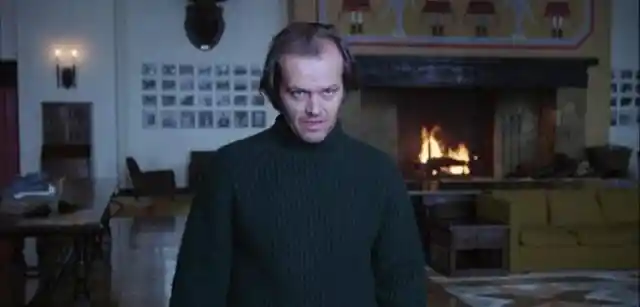
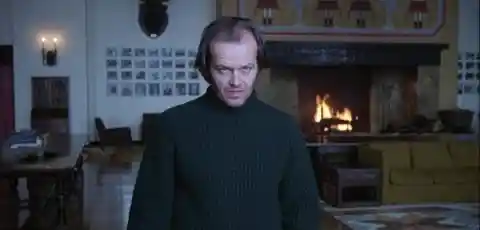
Produced and Directed by Stanley Kubrick, 1980's The Shining is based in Stephen King's 1977 novel of the same name. Jack Nicholson plays the movie's main character who goes from the hotel's winter caretaker to a crazed lunatic hunting his own wife and son as a result of the influence of the haunted abode.
Knock, Knock, Knockin' On Johnny's Door
In the film's climactic end sequence we see Nicholson's character, Jack Torrance, smash the bathroom door with an ax before ramming his head through the door shouting "Here's Johnny!" Apparently, Nicholson took the line from Ed McMahon's famous introduction to The Tonight Show Starring Johnny Carson.
The Empire Strikes Back
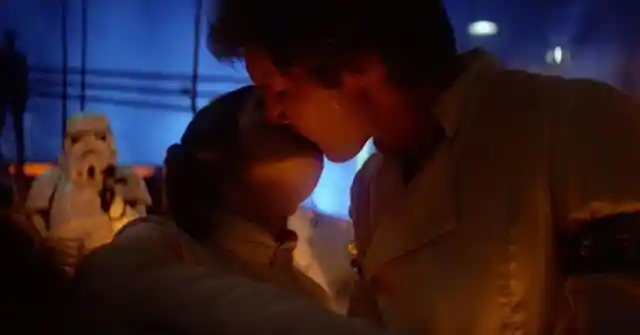
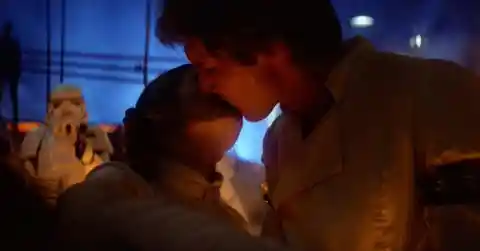
Considered the pick of the crop among Star Wars films, 1980's The Empire Strikes Back's most famous line is "No, I am your father." However, there is another moment in the film where anti-hero Han Solo is chosen to be carbon frozen by the Galactic Empire. Right before Han is taken away, Leia kisses him as Leia tells him, "I love you."
"I Know"
Originally, the scene had Han replying "I love you too." However, Harrison Ford, who plays Han Solo, felt it did not fit his character's personality. After several takes, the director asked him to improvise on the spot, with Ford changing his line to "I know".
Young Frankenstein
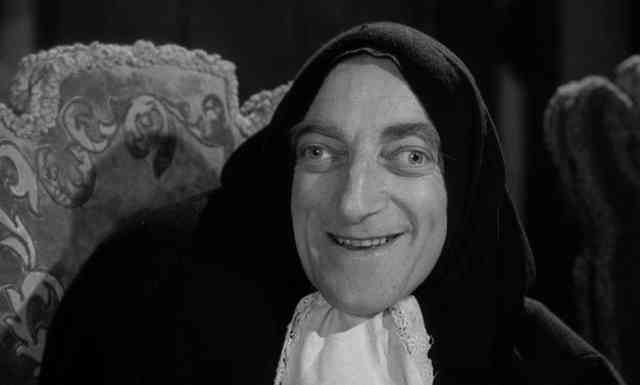
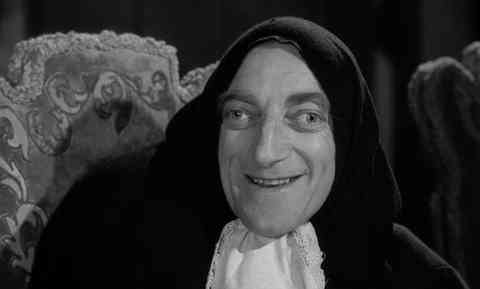
The Mel Brooks directed comedy horror film Young Frankenstein is a parody of the classic horror film genre, in particular, the various version of Mary Shelley's novel Frankenstein. Brooks shot the film entirely in black and white to evoke the atmosphere of earlier films, and used a 1930s style of opening credits and scene transitions, and even used lab equipment props from the 1931 film Frankenstein.
My Hump, My Hump, My Hump, My Hump
Marty Feldman who plays Dr. Frankenstein's hunchbacked, bug-eyed servant Igor, is responsible for adding the line "What hump?" which he says as he pushes his hump further on his back. Brooks loved it so much he kept it in the film.
Animal House
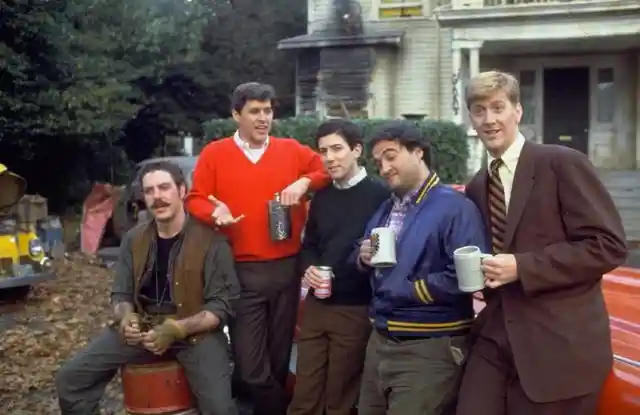
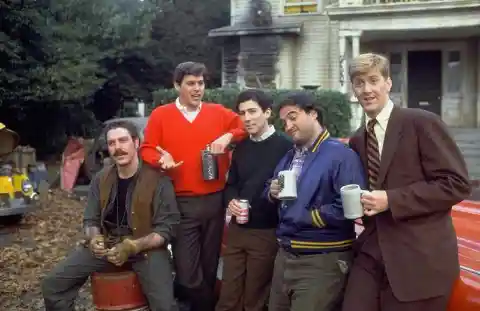
Animal House was a box office success upon its release in 1978 despite its limited production costs. It started an industry trend as it inspired several other comedies in years to come. Director John Landis's unconventional choice to use dramatic actors and soundtrack to make the comedy more believable soon became a traditional approach to comedy films.
Well, Did You Get It?
Star of the movie, Jim Belushi who "hardly had any dialogue" when he agreed to take the role of John "Bluto" Blutarsky was asked by to portray the character as a cross between Harpo Marx and the Cookie Monster. In one cafeteria scene, Belushi stuffs his mouth full of food before squishing his cheeks together as the food bursts out. His following comment of “I’m a zit– get it?” was entirely the actors own.
Dumb and Dumber
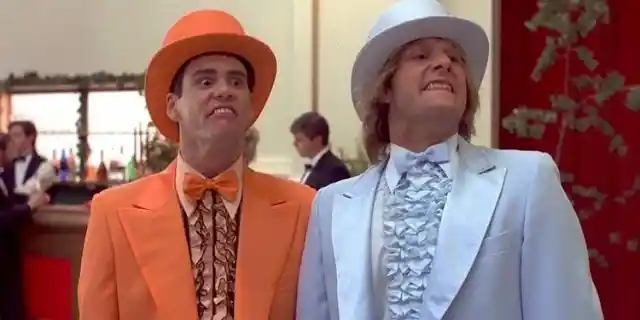
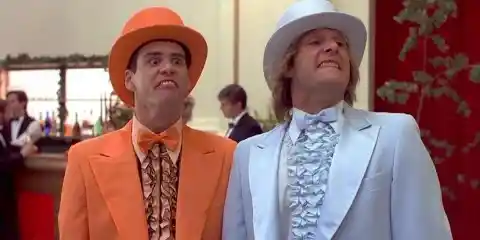
Peter Farrelly's 1994 American comedy film Dumb and Dumber tells the story of two unintelligent but well-meaning friends, Lloyd and Harry, from Rhode Island who set out on a cross-country trip to Colorado to return a briefcase full of money thinking it was abandoned. It turns out the money was actually left as ransom money. The two friends look to return it to its owner, inadvertently spending most of it in the process.
Sounds About Right
The scene where Harry Dunne (Jeff Daniels) and Lloyd Christmas (Jim Carrey) are in the car and Lloyd asks Harry if he wants to hear "the most annoying sound in the world", was not in the original script. The look on Daniels' face is genuine.
The Lord Of The Rings: The Two Towers
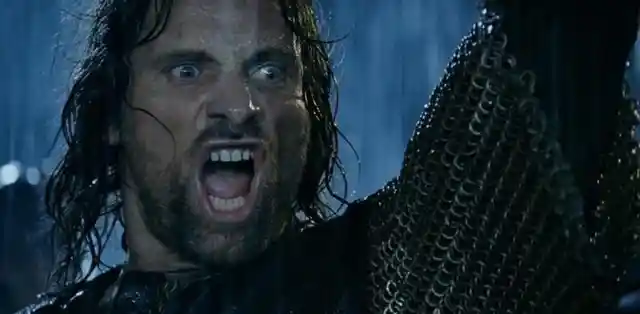
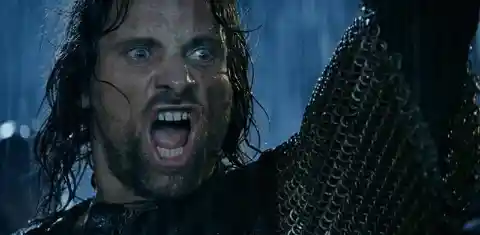
The Lord of the Rings series has become so ingrained in popular culture since it made its big screen debut that there are many quotable moments from the Peter Jackson directed saga. In the second film of the trilogy, The Two Towers, released in 2002, Viggo Mortensen's character Aragorn comes to believe that two of the hobbits, Merry and Pippin, were killed by Sauron's forces.
Natural Reaction
As Aragorn sees remains of dead bodies lying smoldering, he believes it serves his worst suspicions. In a moment of grief he kicks an Orc helmet on the ground, Mortensen yells in anguish. Mortensen it turns out broke two toes in the process, and the scream was borne from genuine pain. This take is the one in the finished film.
Harry Potter And The Chamber of Secrets
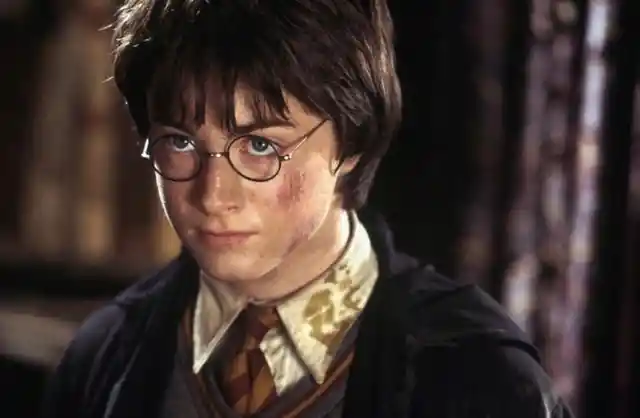
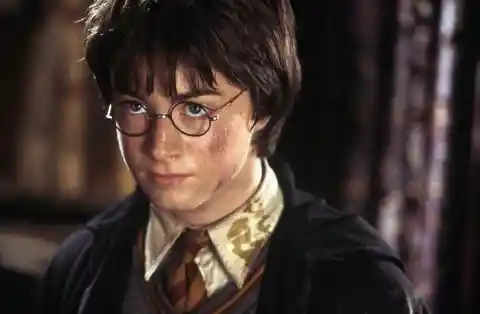
In the second installment of the Harry Potter film series, Chamber of Secrets released in 2002, we see Ron's parents having a disagreement regarding the best way to discipline Ron and Harry for going on a joy ride in the flying family car. As Molly Weasley (played by Julie Walters) reprimands the boys for their actions, Ron's father, Arthur (played by Mark Williams) instead appears to be jealous of the fun.
Why Do We Have Rubber Ducks?
Chris Rankin, who plays Percy Weasley, shared that Williams response changed with every additional take estimating there to be between 13 or 14 in total. In the end, the line which was selected for the film was, "What exactly is the function of a rubber duck?"
Ghostbusters
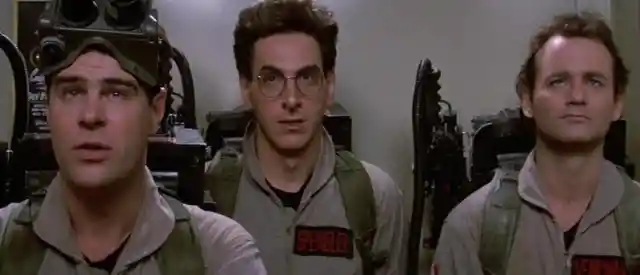
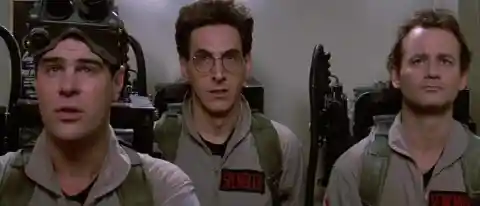
The original Ghostbusters movie released in 1984 tells the story of a group of eccentric parapsychologists who start a ghost-catching business in New York City. Rick Moranis who plays Louis Tully co-stars as the crews neighbor. Moranis, known for his comedic roles, created quite a bit of his own dialogue. It shouldn't be surprising as he famously got his start in improv group Second City.
A Party To Remember
Moranis character, Tully, was initially conceived as a conservative man in business, however, he instead played it as a geek. The director, Ivan Reitman, later revealed that the speech Tully makes to party goers was entirely down to Moranis. The director recalls, "Rick just made all of it up as he was doing it."
Caddyshack
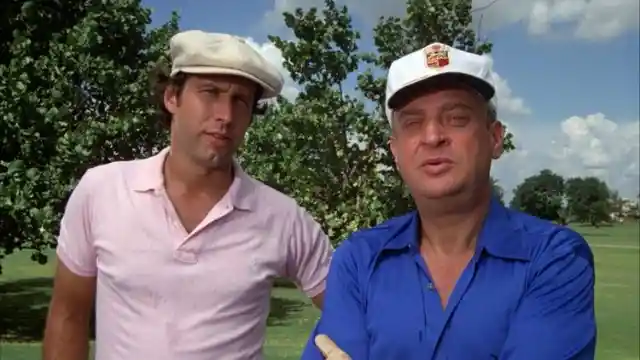
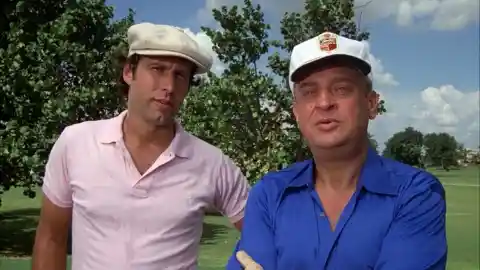
Regarded as one of the funniest sports movies ever, 1980's Caddyshack helped actor Bill Murray enhance his reputation as an on-screen funny man. Murray who plays Carl Spackler was only on set for six days of shooting and all of his scenes were unscripted. At the time Murray was working at Saturday Night Live and was repeatedly recalled to film additional scenes as originally he was not intended to have a large role.
A Crass Quip
Murray's monologues about the Dalai Lama was one of the more famous pieces that come to mind. His famous "Cinderella story" was improvised and based on just two lines of stage production such as "Carl cuts off the tops of flowers with a grass whip." Director Harold Ramis simply told Murray to act as a child announcing his own imaginary golf tournament. Murray improvised the rest.
Knocked Up
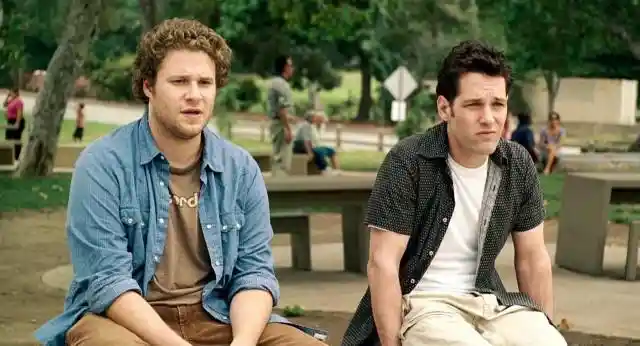
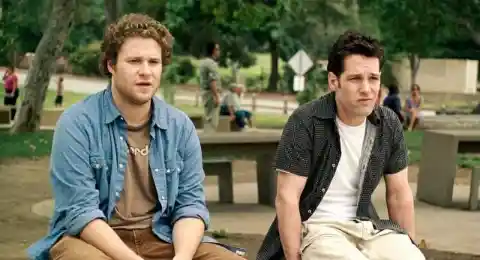
Seth Rogan had worked as a supporting actor, stand-up comedian, writer, and co-producer, prior to his big break in 2007's Knocked Up. Before that, he had small roles in the television series Freaks and Geeks as well as Undeclared.
All Thanks To Eric Bana
In one scene, Rogan's character Ben, mentions that he likes the film Munich because "Jews kick ass". This was improvised by Rogen, and only a third of Rogen's improvisation stayed in film. Rogen would later act with Munich's star lead, Eric Bana, in the film Funny People.
Aliens
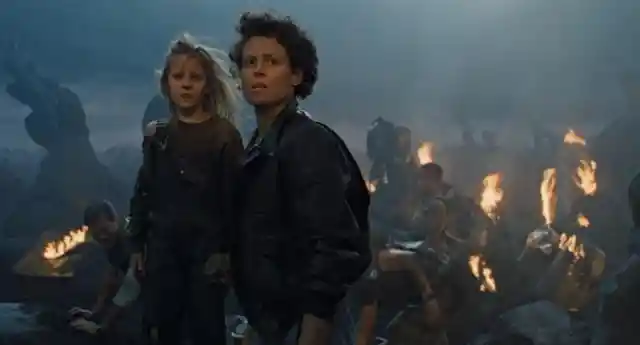
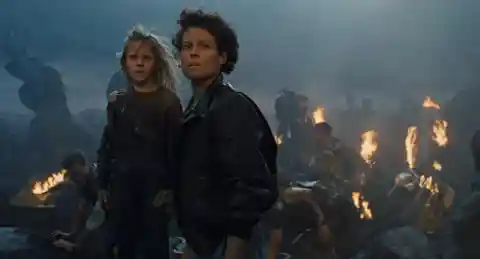
Sequels don't always live up to the original, however, in the case of Aliens many say it surpassed its predecessor. Released in 1986 and directed by James Cameron, the film was nominated for seven Academy Awards, with Sigourney Weaver who plays Ellen Ripley, nominated for Best Actress. At the time it was considered a milestone as the Academy gave little recognition to the science-fiction genre.
Game Over
According to Bill Paxton, who plays Private Hudson he improvised many of his lines, particularly the quote, "Game over, man! Game over!" Paxton won a Saturn Award for best supporting actor for his role.
Tootsie
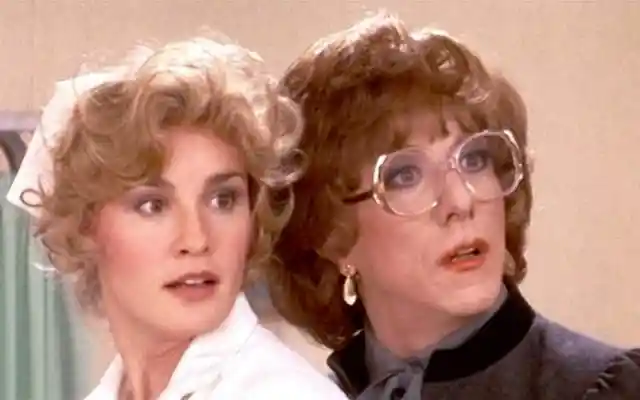
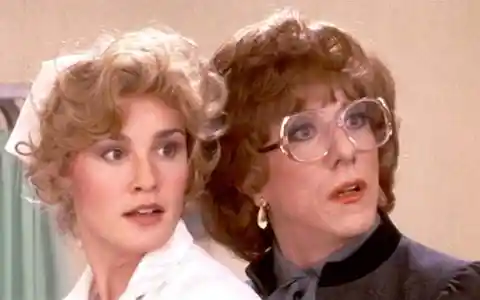
Tootsie, directed by Sydney Pollack, is another film in which Bill Murray makes a famous cameo. Despite Dustin Hoffman being official the star of the 1982 film, it is Murray who steals the show as Hoffman's character's roommate, Jeff Slater.
Keeping The Cast On Their Toes
Just as it was with Caddyshack, Murray again improvised most of his dialogue. The director even asking the actor to come up with his own lines for a party scene. The result was so spectacular that it caught the cast completely by surprise as they didn't know what would happen next.
The Third Man
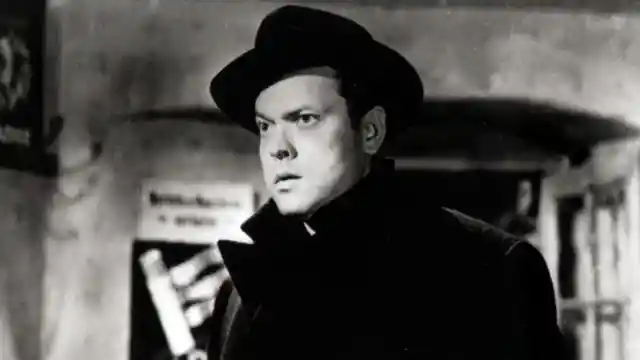
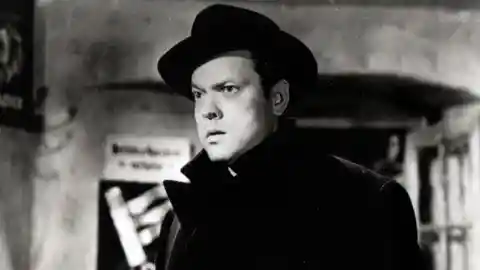
Orson Welles worked just one week in the 1949 British film noir The Third Man directed by Carol Reed. The actor appears on film for just five minutes in the film but is still remembered for uttering the film's most famous line. Known for his great improvisational skills, he could come up with incredible bits of dialogue in a moment.
The Cuckoo Clock
Welles, who plays Harry Lime in the film, famously ad-libbed the following line during the film, "In Italy for 30 years under the Borgias, they had warfare, terror, murder, bloodshed. They produced Michelangelo, Leonardo da Vinci, and the Renaissance. In Switzerland, they had brotherly love, five hundred years of democracy and peace. And what did that produce? The cuckoo clock."
The Devil Wears Prada
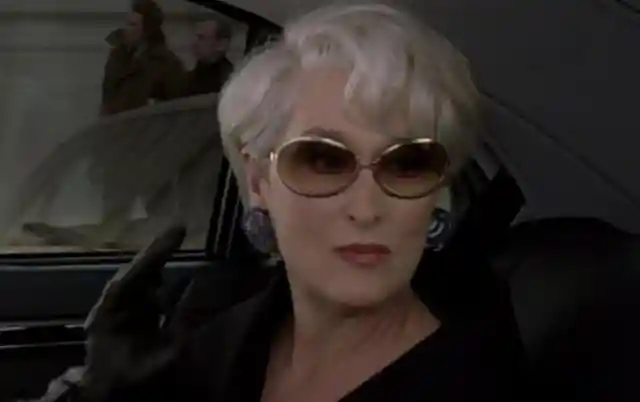
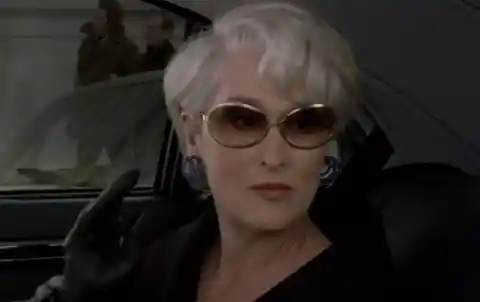
Meryl Streep's performance as the powerful editor-in-chief of Runway magazine, Miranda Priestly, in The Devil Wears Prada garnered her a record-setting 14th Oscar nomination for acting. The 2006 comedy film was a critical and commercial success, making a lasting impact on popular culture.
They Hate Us 'Cause They Ain't Us
In the film's final scene between Streep and Anne Hattaway's character Andy, the latter asks the former if the lifestyle Steerp's character led was what she wanted. Streep responds, "Everyone wants this. Everyone wants to be us." Apparently, the original line was "Everyone wants to be me." Streep did not like the original line as she felt it was too self-involved and dramatic. The change stuck.
The Godfather
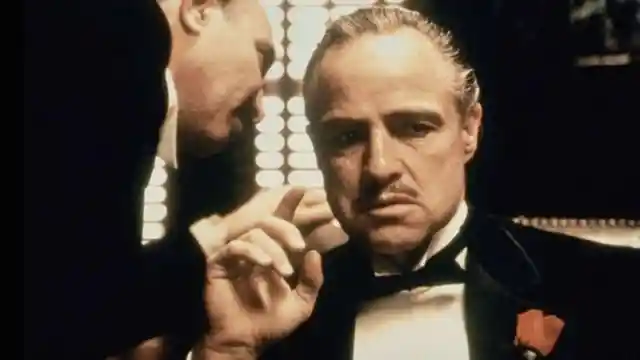
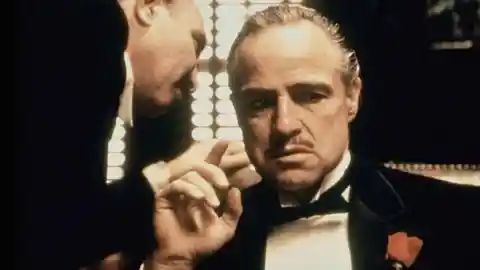
The Francis Ford Coppola directed 1972 film The Godfather is regarded as one of the greatest films in world cinema and arguably the most influential in the gangster genre. The film is based on Mario Puzo's best-selling novel of the same name and won Oscars for Best Picture, Best Actor, and Best Adapted Screenplay, as well as being nominated for seven other Oscars.
Take The Cannoli
One of the most frequently quoted lines is uttered by Richard Castellano who plays Peter Clemenza where he utters the sentence, "Leave the gun, take the cannoli." Apparently, the original line was to end with "gun". The line has since been referenced in several films,
Casablanca
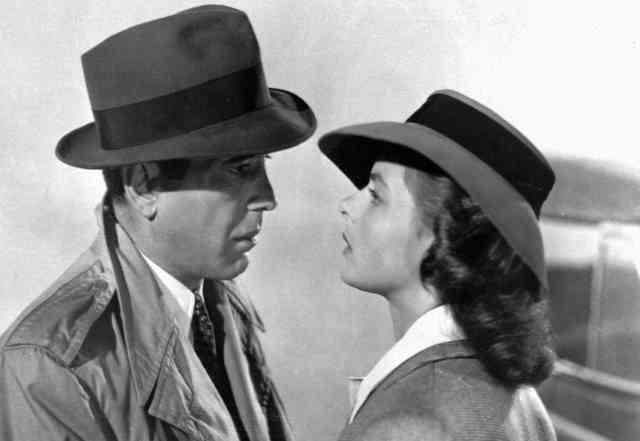
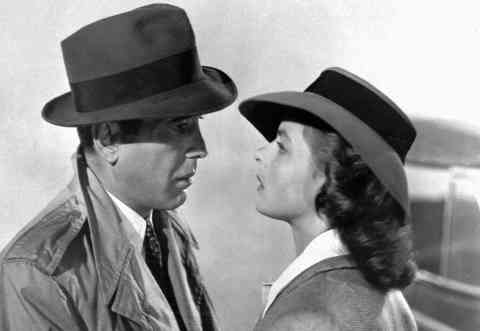
It says a lot about a film when it wins the Academy Award for Best Picture, Best Director, and Best Adapted Screenplay. However, it might come as a surprise to many that the 1942 romantic drama film Casablanca, wasn't that much of a success until awards season, after which its reputation grew. It's lead characters, theme song, and memorable lines have since been etched in popular culture.
Here's Dealing For You Kid
Humphrey Bogart, who plays Rick Blaine, utter's the famous line "Here's looking at you, kid" in a toast to Ingrid Bergman's character Ilsa Lund. The line was never written into the draft screenplay, but rather came from a comment Bogart would say to his Bergman while playing poker between takes.
Lost In Translation
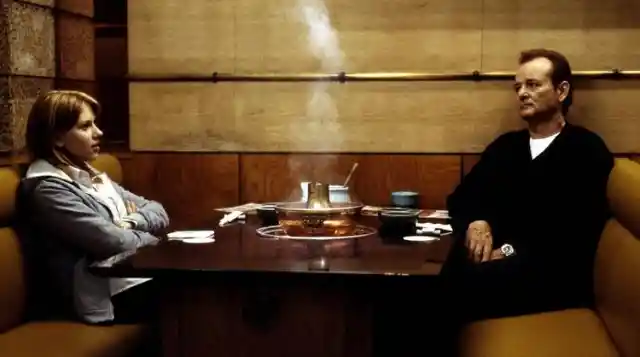
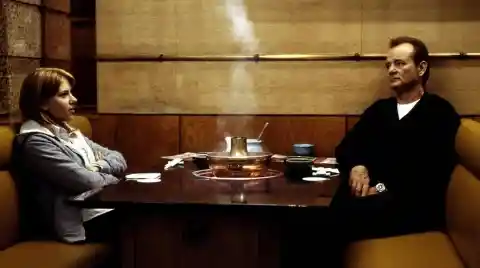
In the final scene of 2003's romantic comedy-drama Lost in Translation, Bill Murray (who plays aging movie star Bob Harris) and Scarlett Johansson (who plays young married college graduate Charlotte) share a kiss goodbye.
What Exactly Did He Say?
The director, Sofia Coppola, had instructed Murray to perform the kiss without telling Johansson anything about it. Her reaction is genuine, as is Murray's unscripted whisper in her ear which follows. The director later decided to leave the inaudible whisper as is, keeping us all still guessing as to what was said. The most popular opinion, and perhaps the closest match to what Murray might have said is believed to be "Promise me, that the next thing you do, is go up to that man and tell him the truth."
The 40-Year-Old Virgin
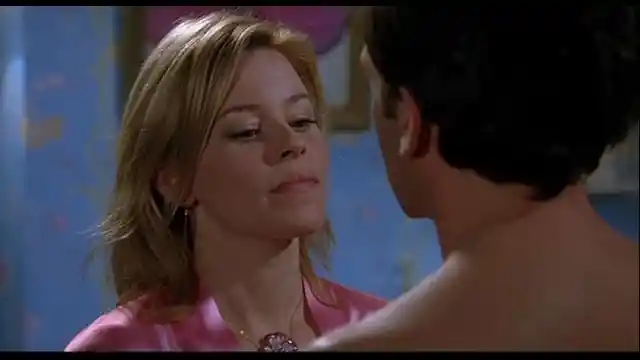
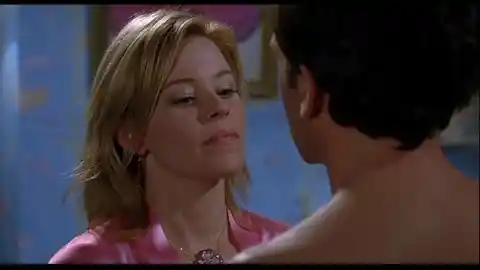
Judd Apatow's 2005 film The 40-Year-Old Virgin stars Steve Carell as the titular character Andy Stitzer as an electronics salesman and toy hobbyist whose friends make it their mission to help him lose his, well, you know what. Many of the actors being comedians, were given free reign to improvise at will by the director. As such, a lot of the movie was improvised while shooting.
He Wasn't Acting
The scene where Andy gets his chest hair wax is real. The reactions of the cast around him are genuine too. As the entire thing had to be done in one take, five cameras are used. Actor Paul Rudd, who plays Andy's friend David, came up with the idea for Carell to yell out "Oh, Kelly Clarkson" during the wax.
The Fugitive
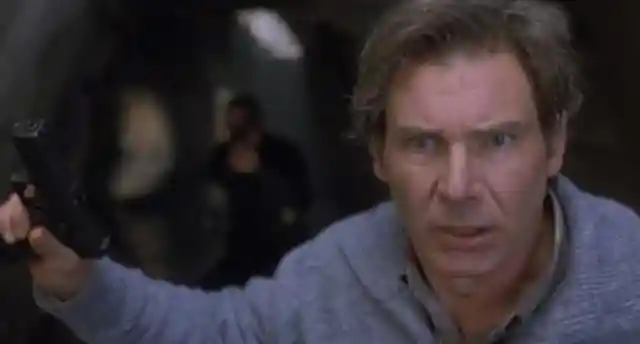
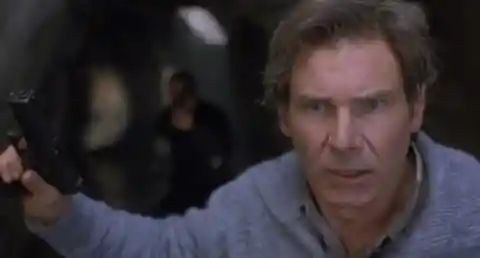
The Fugitive was a critical and commercial success upon its release in 1993. Starring Harrison Ford and Tommy Lee Jones, for which the latter won a Best Supporting Actor Oscar, the film tells the story of a man (Ford) wrongly convicted of killing his wife, now on the run from a team of U.S. Marshals headed by Jones, in an attempt to prove his innocence.
I Don't Care For This Line
In one of the film's most tense scenes, Ford tells Jones he is innocent and had nothing to do with his wife's murder exclaiming, "I didn't kill her!" Jones, forgetting his line where he is supposed to say "That isn't my problem", instead says "I don't care". It proved poignant as it nicely contrasted with the ending where Jones character responds "I know it" to Ford's proclamation of innocence.
Bridesmaids
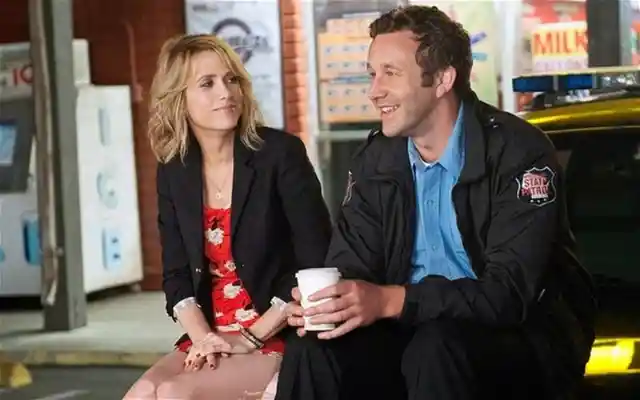
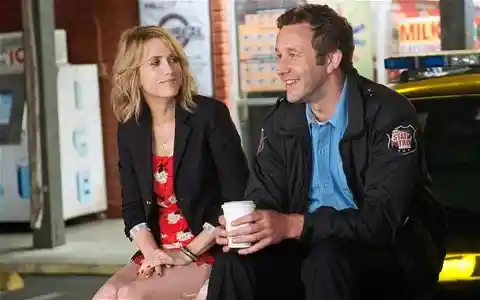
The 2011 American comedy film Bridesmaids was a surprising critical and commercial hit. It resulted in two Academy Award nominations and served as a reference point for women in comedy. The cast of the film spent about two weeks improvising with one another. Some of what resulted ended up being incorporated in the movie.
One For The Road
One of the film's most unforgettable moments occurs when the main characters come down with food poisoning while dress shopping for the wedding of Lillian Donovan (played by Maya Rudolph). The moment where Donovan squats in the middle of the street in her wedding dress in order to relieve herself, as she couldn't hold on any longer, was entirely unscripted.
Pretty Woman
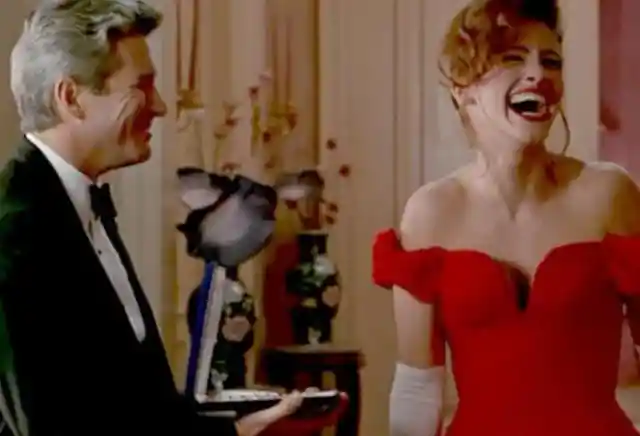
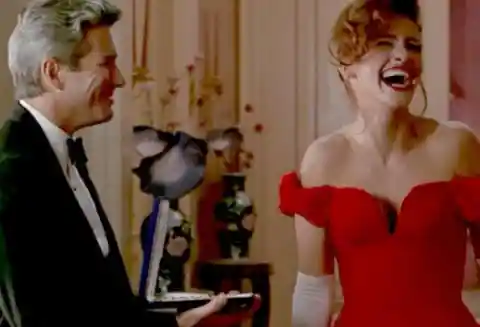
Julia Roberts portrayal of Vivian Ward, the assertive freelance hooker with a heart of gold, in the 1990 romantic comedy Pretty Woman established the actress among Hollywood's elite. In the movie, rich corporate raider and womanizer, Edward Lewis, played by Richard Gere, hires the former to be his escort for several events, with their relationship developing over the course of the week-long arrangement.
Having A Laugh
The scene where we see Lewis snapping the necklace case down on Ward's fingers was improvised by Gere. Roberts giggling reaction is genuine. The filmmakers liked it so much they decided to leave it in. Apparently, Gere had originally planned the entire thing as a stunt on Roberts.
Deliverance
